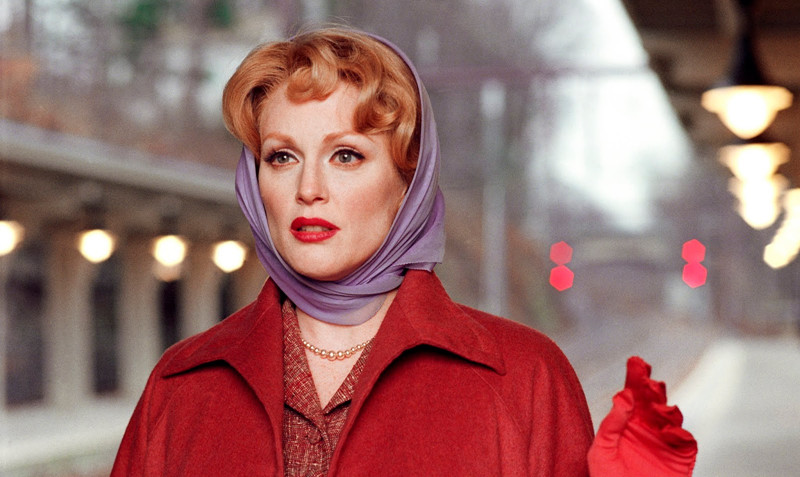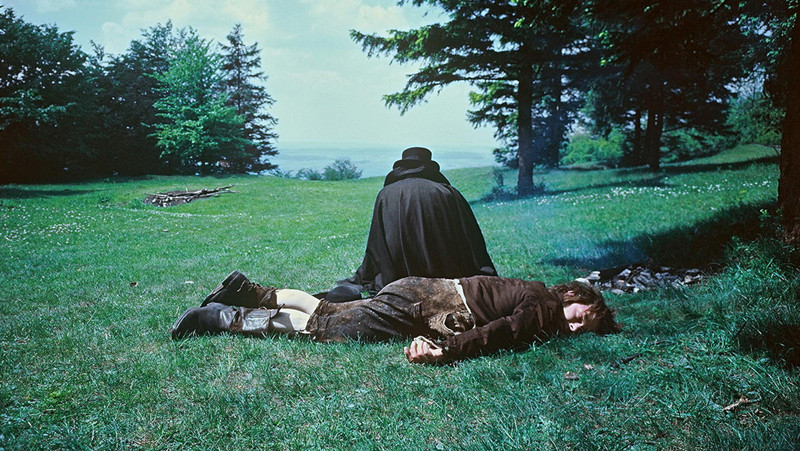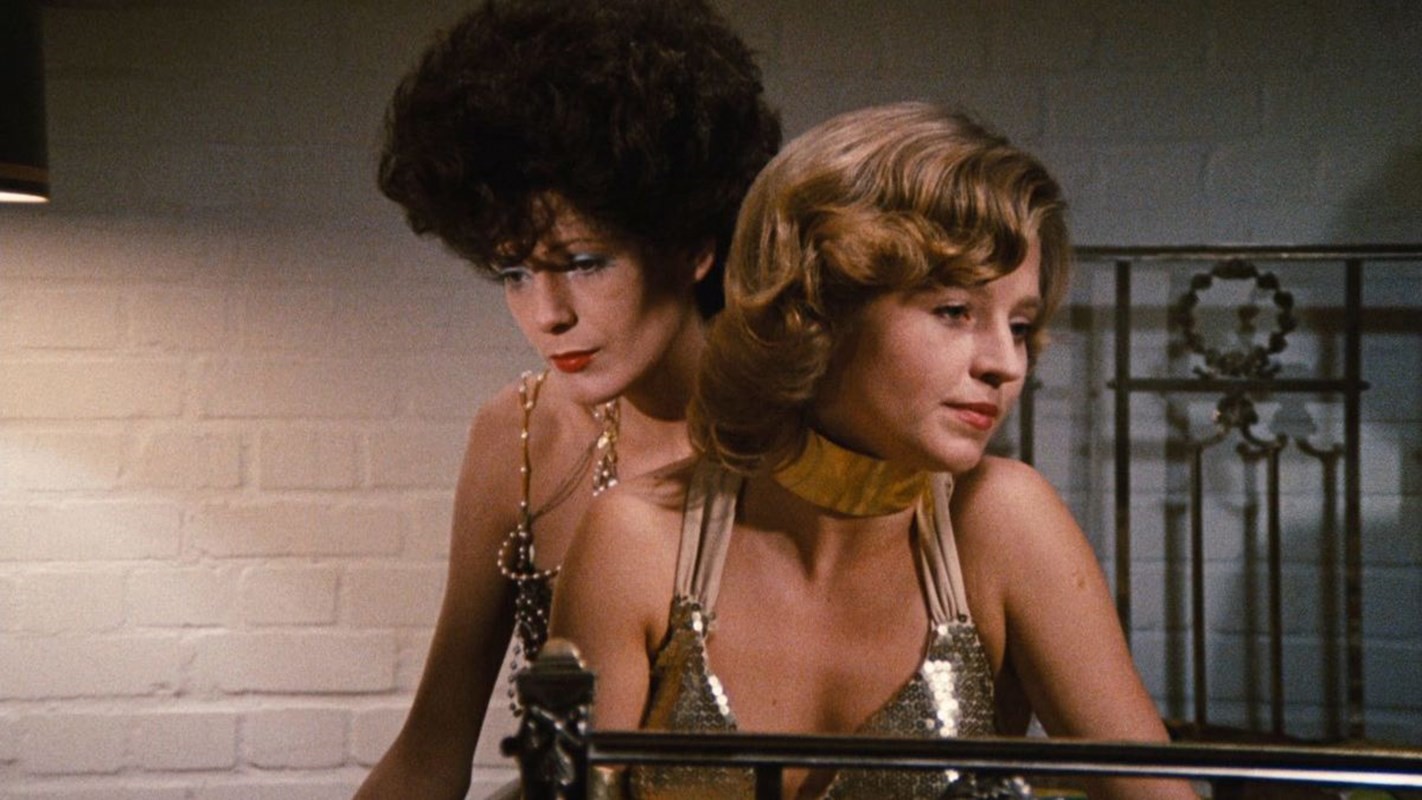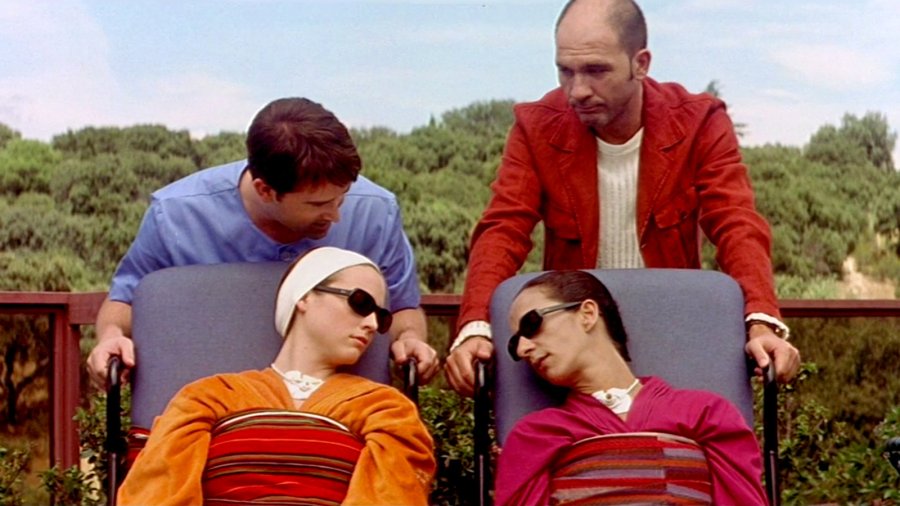
A melodrama is a work of fiction featuring exaggerated characters and intense occurrences. In these stories, emotions are dialed up to further engage the viewer. Character development is substituted by stock characters designed to fulfill particular dramatic and emotional functions. There are clear bad guys and clear good guys. The revival of this type of storytelling began in 18th Century France. It became more popular during the Industrial Revolution. The melodramas of this time reflected the anxieties of the middle-class amidst industrialization. Many operas and plays of the Victorian era belong to this subgenre. It was only natural that such a popular genre would eventually make its way into film.
Many early films had heavily melodramatic characteristics, and this only became heightened with the coming of sound. Critics often look down on this type of storytelling, especially its reliance on emotions and black and white characters. Yet, the melodrama is a key subgenre in literature, theater, and film. It has dictated how family, sex, love, and many of the common topics of film have been dealt with. The way different filmmakers have made the genre their own and enable it to mutate is proof of its universality and appeal. Here are ten key melodramas and what’s great about them.
10. The Enigma of Kaspar Hauser (1974)

Werner Herzog is a filmmaker that has always been able to positively contribute to a plethora of genres. Be it documentary, period-piece, or horror, he has the worthful ability to tell old stories in new ways. The Enigma of Kaspar Hauser is one of his many great movies. The film tells the real story of Kaspar Hauser. Hauser lived in 19th Century Germany and spent his whole childhood in isolation. He had his first contact with society as a teenager and was taken in by the citizens of Nuremberg.
The film tells the story of his attempt to adapt to society. It’s hard to place into any particular genre. It has strong elements of both mystery and drama. Yet the label of melodrama is most fitting. Herzog’s characterization of Hauser is particularly clever. He makes him a complete saint. Kaspar Hauser does not have a single flaw. The viewer can’t help but completely empathize with him. We cheer when he succeeds, we worry when he’s in trouble, and we anger when he gets hurt.
Despite there being a clear good protagonist at odds with people trying to hurt him, another layer of complexity is added when the Nuremberg populace is taken into account. They are not clear-cut evil, they actually try to take in Kaspar and make him a social man. Yet their attempts to do this often only alienate him further. It is believed that a melodrama can only conclude in one of two ways, extreme tragedy or extreme happiness, this movie is the former. It’s a bleak and mysterious tale that is highly melodramatic yet as a true Herzog film, immensely human.
9. The Bitter Tears of Petra von Kant (1972)

Rainer Werner Fassbinder was a true master of the melodramatic. He made more than thirty films in his short career, and the only thing that stopped him was his death. Most of these are melodramas. Throughout his career, he was able to take advantage of the classic techniques of the subgenre while making films that were distinctly unique.
Fassbinder made some great films. World on a Wire is like if The Matrix was a 70s German miniseries, and The Marriage of Maria Braun is worth watching too. But The Bitter Tears of Petra von Kant is his best melodrama that I’ve seen so far. It tells the story of a fashion designer who falls for a young aspiring model. In melodramas, music is usually used to heighten the emotional impact of a scene. In this film, Fassbinder uses set design instead. The film takes place in Petra von Kant’s home. The bright colors and cluttered rooms of her home place a sometimes ironic emphasis on the emotional interactions that take place in it.
Interestingly enough, despite being the protagonist of a melodrama, Petra von Kant isn’t particularly likable. She is prideful, petty, treats her servant as a slave, and has an almost sadistic perspective on relationships. Yet Fassbinder makes us like and care for her. This is in part due to Margit Carstensen’s awesome performance; the acting is all around excellent. It’s structured in acts, which makes it feel like a play. Every act has a distinct tone to it and by the end, the sum of its parts results in a profoundly satisfying experience. Fassbinder knew how to make a film but most importantly he knew how to tell a story that mattered. The Bitter Tears of Petra von Kant is a film of heightened emotions but still is a slice-of-life narrative of the highest quality.
8. Medea (1969)

The classic Greek tragedies are the foundations of melodrama. They literally depended on emotion to tell the story. It is in the way the characters act, in what they say, and in what they do. The revival of the melodrama that occurred in the 18th and 19th Centuries was in part a revival of the Greek Tragedy way of storytelling.
Pier Paolo Passolini was very interested in Greek tragedies. He had previously adapted Oedipus Rex, and in 1969 made Medea, based on the play by Euripides. It tells the story of the myth of Medea. Medea was a princess and a witch who fell in love with the hero Jason and abandoned her life and family to be with him. They travel the seas, have children, and live happily together. This all changes when they arrive at Corinth. Jason decides to marry the princess of Corinth for political reasons and abandon his family. Medea takes revenge by killing their children. It is its shocking conclusion that makes it one of the most enduring Greek tragedies. Pasolini’s take on it is very unique, he tells the story with minimal dialogue and music, and relies on imagery instead.
Many of the melodramatic plays of the Victorian Era had the “fallen woman” as the main character. This stock character was in some cases a single mother at odds with the people in her life and the uncontrollable forces of life. Peter Brooks writes that the melodrama represents a “victory over repression”. If that is the definition of the subgenre then there is no better example than Medea. She is a woman that gave up her life for the love of a man who quickly discards her for political gains. She is an outcast in a world of politics and war, from an older more mystical world. The king of Corinth decides to exile her because he fears her. Medea decides to take revenge and triumphs over their repressive actions by committing the only act a mother could never commit. This perspective shattering act is justified in the play by her ascending to the heavens.
Passolini makes the ending more cryptic and intense by having Medea, played fiercely by Maria Callas, exclaim from the top of her burning house “It is useless! Nothing is possible anymore!” In a reality where the notions of love and family are shattered to pieces, what good can happen? Passolini’s film is dark and meditative but worth watching for its incredibly interesting take on this famous myth.
7. Breaking the Waves (1996)

Lars von Trier has gained a reputation as an enfant terrible of arthouse cinema. He rarely refrains from portraying violence, sex, mental illness, and other iffy subject matter, and he does it generously. Naturally, controversy has followed him throughout his career. Regardless, many of his films are undeniably powerful works of art. He is a filmmaker bent on pushing boundaries, and unlike many of his sort, he has been able to break into the mainstream and earn worldwide acclaim.
Breaking the Waves is the film that helped him achieve this. It stars Emily Watson as Bess, a naive Scottish woman who marries Jan, a foreign oilman (played by Stellan Skarsgard). When Jan becomes paralyzed in an oiling accident, he convinces her to sleep with other men so he can vicariously love her through them. It’s an iffy plotline. The story might seem hard to believe, but the straightforward, bare-bones style that von Trier so often employs makes it extremely engaging.
Bess is the perfect example of the melodrama protagonist. Almost a callback to the women films of the Golden Age of Hollywood, she is a woman who was able to taste happiness but lost it all. She is scrambling to fit into a society that looks down on the way she is, and she suffers for it. The film details her struggle to find purpose and joy again, and what that even means when the love of your life suffers from a life-changing accident. It has plenty of melodramatic scenes, but they are found in between a very realistic and thematically dense story that approaches love, religion, and devotion in a way that had never been done before. It’s a melodrama but at the same time it defies definition, and I think that’s what captivated audiences and earned both Watson and von Trier worldwide notoriety.
6. Talk to Her (2002)

Pedro Almodovar is a master of the melodrama. Through his stories, he has made audiences laugh, worry, and probably cry time after time after time. His are stories of unrequited love, dangerous passion, and women going through the worst time of their lives. In 1999 he became world-famous with All About My Mother. A melodrama about a grieving mother who returns to her home after the death of her son. It’s equally comparable to Spanish soap operas and 1950s American cinema, and an amazing film that could’ve also occupied this spot. But his 2002 follow up Talk to Her is much more interesting in its ambiguity and role reversals in terms of melodrama.
Talk to Her is the story of two men and two women. The thing is, both the women are in a coma. Marco’s girlfriend is a bullfighter who gets gored by a bull. Benigno is a nurse at the hospital where she’s interned and is in charge of taking care of the comatose patients, among them is Alicia, a beautiful dancer. Marcos and Benigno form an unlikely bond as they care for the women. Benigno is a sentimental and caring man, but there is a revelation at the climax of the film that completely changes the audience’s perception of the character and the film as a whole.
Almodovar uses the usual cinematic techniques of melodrama. Musical cues, exaggerated scenarios, and episodic form. Yet the way he places emphasis on the friendship relationship between the two men and challenges the moral straightforwardness of his characters is why it is such a fascinating deviation of the subgenre. Like von Trier, Almodovar approaches the melodrama in his own transgressive style. It is also a reason for its massive success. Almodovar won an Oscar for Best Screenplay and cemented his place as one of the greatest modern filmmakers with this masterpiece.